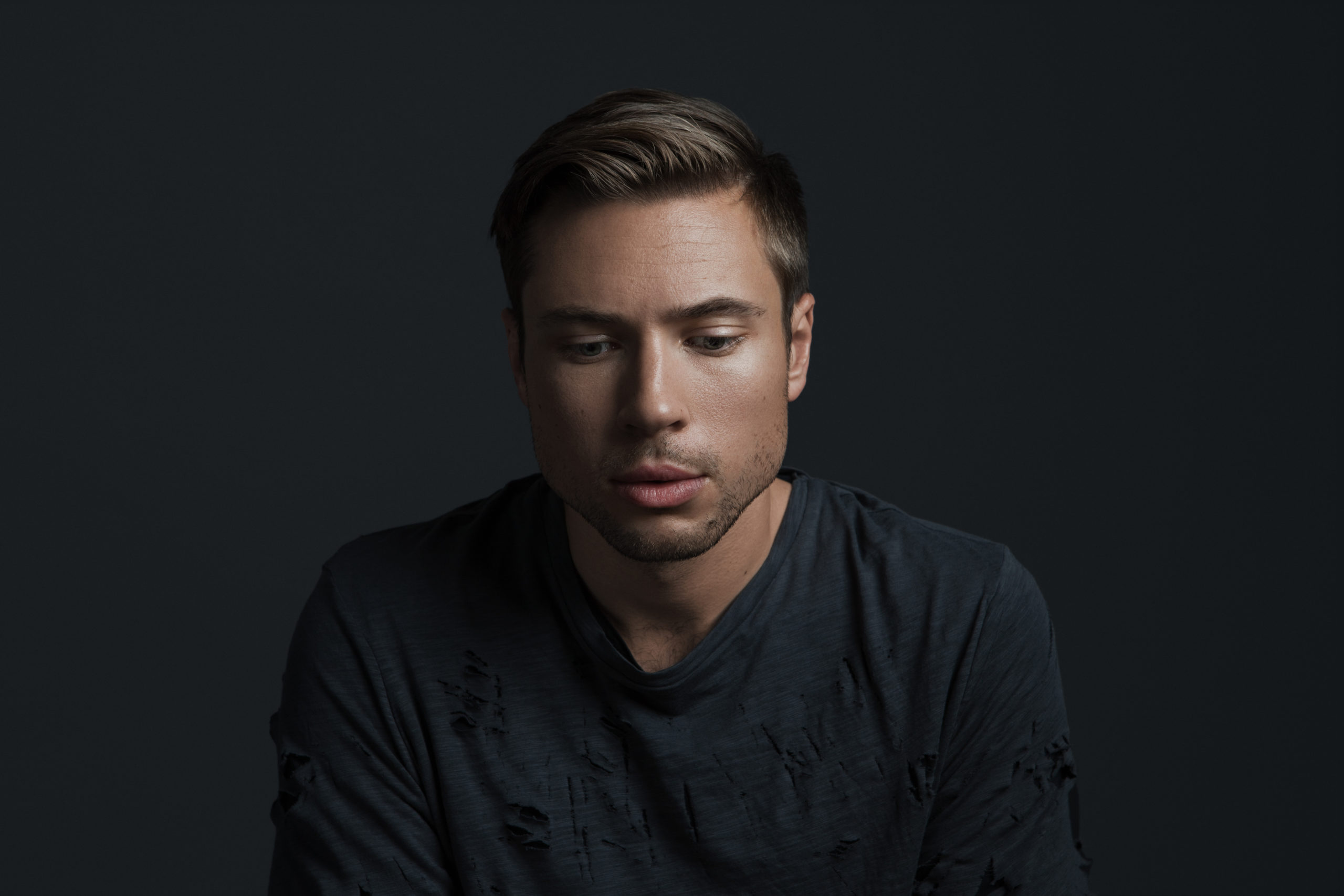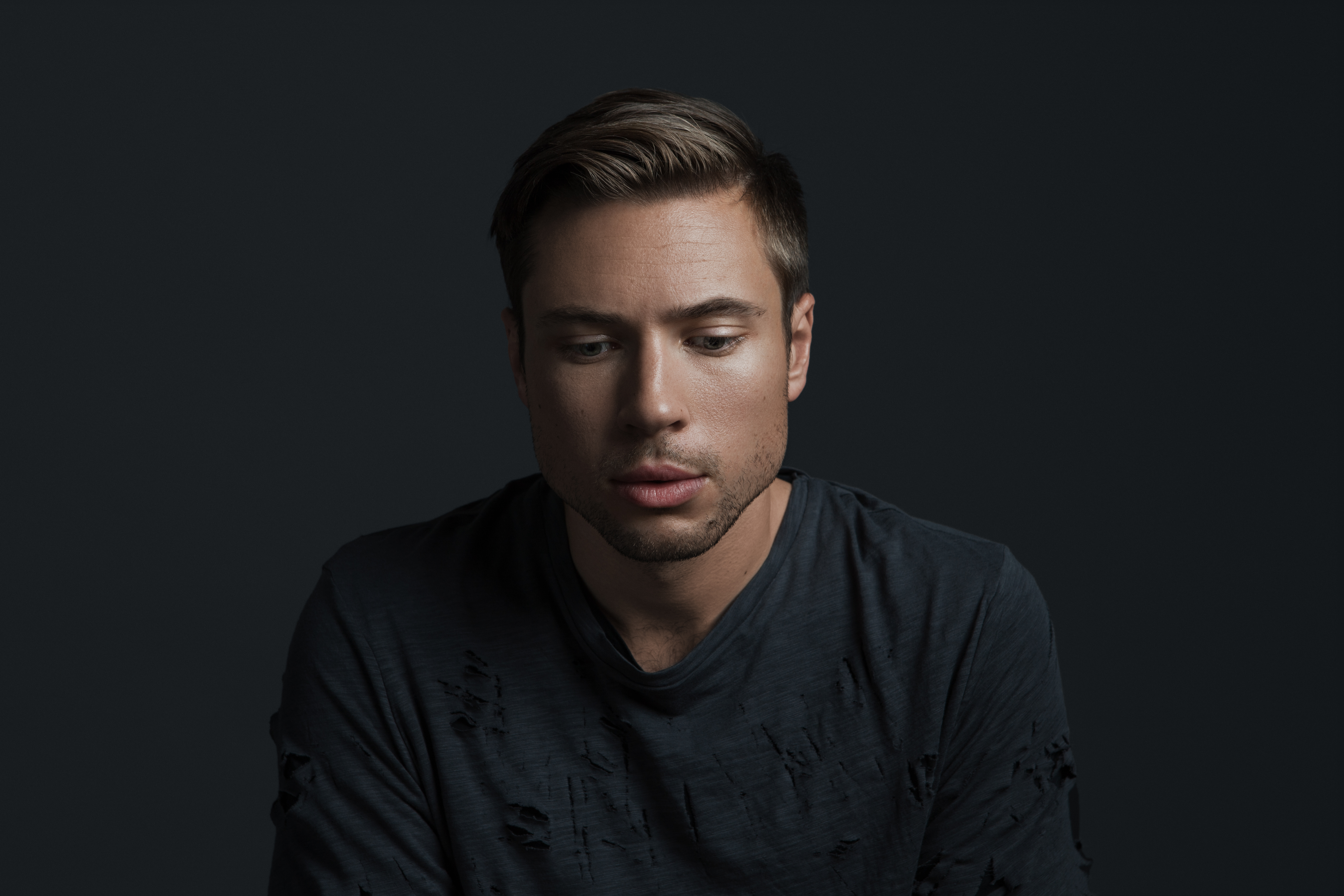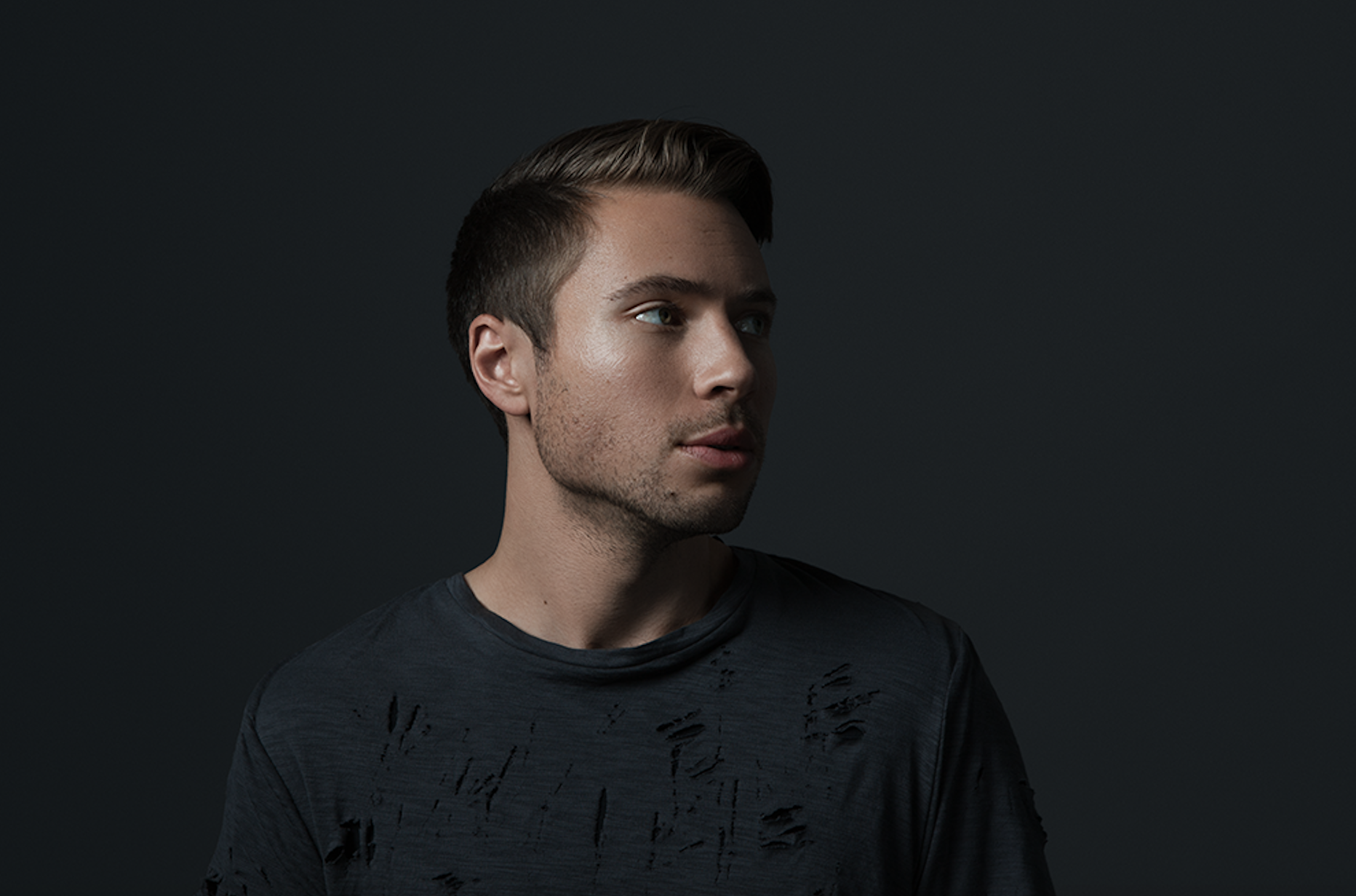Real Talk: Tim Green
Can you wait too long to release a debut album?

Real Talk: Tim Green
Can you wait too long to release a debut album?
Tim Green‘s Discogs page is strangely bottom-heavy, and it’s been that way for some time. The UK artist, a London resident, has long been a familiar name in house music circles; over the course of a 10-year career—that really started with Revox (Dirtybird; 2008) and TG*’s Mr Dry / Glow Worm (Trapez; 2008)—Green has amassed himself a discography high in both quantity and quality. Over two pages under “Singles & EPs,” you’ll find labels like Get Physical Music, Cocoon Recordings, and Four: Twenty Recordings; while his similarly extensive “Remixes” section includes those for Booka Shade, Claude VonStroke, Timo Maas, and Seth Troxler, among others. It’s a healthy body of work, which long had one glaring omission: an album.
Green’s first foray into the long-player format finally appeared on Sven Väth’s Cocoon in May, titled Her Future Ghost. Deeply melodic and transportive, the 10-track album arrived with a cohesive concept rather than as a collection of dancefloor tracks. “My direction for Her Future Ghost was to write a film score for a film that doesn’t actually exist,” Green explained. “As an avid film score fan, I wanted to create a body of work that took certain typical soundtrack traits. For example, different motifs that repeat throughout, like character themes which evolve and mutate as well as a narrative that develops through the music.” In waiting so long to release an album and then delivering something that shunned expectations, Green aligned himself with the likes of Pariah and Leon Vynehall, both of whom delivered long-players that bore little resemblance to all their work that had come before.
It goes without saying that a first LP is a huge landmark for any artist. But how risky is it to go off course when finally making this debut? How risky is delaying your debut, and can you wait too long? Is there a conflict between allowing the work to emerge naturally and getting that identity-defining LP out there? How do you deal with your expectations of yourself, and those of listeners and potential labels? Reflecting on his experiences, Green offered up his thoughts in this month’s Real Talk.
I’ve just released my first LP, after a decade of DJing and producing. It’s a labor of love that I worked on for over a year, and, quite honestly, I couldn’t be sure how it would be received, especially as something I’ve approached quite late in my career. I think for any artist there’s an expectation, a generalized pressure to release that debut album, whether this is coming from yourself or external influences or both. Unfortunately, there’s a pattern, kind of like being in a relationship: you start by dating someone, then you evolve to a girlfriend and boyfriend status, then you decide to move in together, then you get a pet, and then begin thinking about kids—the obvious next level. I think it’s the same with musicians, especially in this house and techno scene: if you produce music, and if you start doing well, you release an EP or two, then you obviously start to perform as a DJ, then possibly a live act, then you start a collective and your own club night, then you think about starting your own label, and perhaps then be expected do an album etc. You get the idea.
I’ve never really been one to follow these patterns. When I’ve tried in the past, sometimes it hasn’t worked for me. I’ve made decisions sometimes because I noticed other artists doing certain moves with their careers, and felt I should do the same. But throughout the course of my career, I’ve learnedss it’s better for me to get on and just do what I want. I think that comes across as more true and honest because I think a listener can tell if you’re trying to force something rather than letting it happen naturally.
The main reason for my delay regarding my debut album was that it just wasn’t the right time to do the album that I wanted to do. It’s nothing against anyone else, but for my own personal taste, I have always been quite bored with house and techno albums that are just filled with 10-12 dancefloor-orientated, DJ-friendly tracks, all of which could easily have been singles, and are not cohesive enough to require being presented as a long-player. These sort of albums don’t inspire me, and I know I couldn’t write an album like this very well even if I tried. I’m not good at writing all the same sort of music; it’s too challenging for me, and not in a positively challenging way.
Producers are under a lot of pressure to release a debut album, believe me. And this pressure is so easy to give into, especially when you’re young and new to the scene; it takes experience to know how it all works, and it’s not always easy to be patient—let alone say “No” to those who are encouraging you to begin with. I feel as if there are lots of producers who give in to this pressure and release debut albums much too early in their careers which, more often than not, leads to lower quality and rather generic results—often just a collection of single tracks, rather than a cohesive, well thought out body of tracks to form a real artistic statement.
But where does this pressure come from?

A lot of it comes from bookers and management teams. It’s natural for artists and those around them to think that the release of a debut album is taking the next step to becoming a recognized artist with clout. Having that album in the discography for any artist who values their output can feel so important, and it becomes a point for everyone in the industry to take note of. But, more importantly, an album release gets more publicity than an EP, pushing an artist to the next level of PR so they can achieve such things as magazine covers, etc. It goes without saying that this gives management and bookers a tool—some leverage, if you like—to open new doors. For these reasons, it’s common for bookers to encourage artists to release albums in Autumn, as that’s when festivals are starting to put their lineups together. The extra publicity helps to get their attention, and often helps secure coveted slots at the larger festivals, and ticket sales benefit from the extra media coverage for DJs on next season’s posters.
Pressure can also come from the labels who, incidentally, are aware that the publicity generated from bigger bookings can push record sales. In my case, it definitely helped to have a strong relationship with a label patient enough to wait, which I’ll discuss more later. And pressure can come from internally, too: if a record label has released a couple of EPs, and the artist gets the impression the label would like to release the debut album as well, the artist might fear missing that window with them by waiting. And, zooming out a little further, artists still establishing themselves may feel internal pressure as they see others at the same career stage getting coverage for their debut albums, and worrying personally that they’ll miss out by not following suit. This is certainly something I felt.
What’s interesting, too, is that management teams and bookers often create pressure without even realizing they’re doing it. Especially in this day and age, with the constant demand for new information and headlines. It’s no secret that it’s much easier for them to sell a busy artist than not, and management teams would prefer something now rather than something good several months down the line. After all, they need something to shout about, even if this is to the detriment of the product.
I never felt this sort of pressure, thankfully, at least not from my booker. I’ve been with my same management since day one, so they have always been patient all these years. They always suggested that I do a debut album, but they never forced it and left it all up to me. But even this can create pressure in some situations. How many times can you push back or refuse against your own management before they start to feel they are not helping, influencing, or managing you anymore? If enough disagreements happen, perhaps they might not want to spend so much time working for you and your career, in turn perhaps stop entirely their desire to work with you and move onto another artist? There’s always some pressure.
I always had these worries, of course, but I dealt with it by having a great relationship with everyone involved with my career. I’ve always been discussing possible opportunities and ideas with everyone. And if I did not want to do something that was suggested to me, I always offered the real reason why. My music will always be my priority and I always knew that holding off on the debut album was the best thing to do in this regard. Ultimately, while I feel you can sustain a career in music with a high quantity of releases, I think this only lasts so long; at some point, people will become bored and recognize that it’s soulless. It’s a cliché for a reason: quality is better than quantity, certainly in the long-term.
And, if you manage to handle the pressure—and you do hold off, patiently—it doesn’t really get much easier. There are still important decisions to be made.
I strongly feel that an album is an opportunity to do something different to what has previously been expected of you, and that any artist should jump at that. As artists, we should always be pushing boundaries and taking risks, especially in any electronic music genre. It’s a technology-based form of music and, as the technology evolves and grows, so should the music. It’s also the most modern form of music; it’s the most futuristic, and so it should also be the most creative and experimental. When you’re given the opportunity to write a song and have it played, that’s like a five- to 10-minute window where you can express your musicality, originality, and your opinions on some level, too. With an album, you have considerably longer; an album is a perfect platform for this experimentation, and I think we as artists and representatives of electronic music aren’t trying hard enough if we don’t push the music forward.
I’ll hold my hands up: I’m guilty of it myself; there have definitely been occasions where I’ve not pushed myself enough by experimenting. I’m always going to use a concept in some form to help write music, even if it’s at least a small idea or feeling just as a catalyst for something that enables me, or inspires me to have some sort of music written as one connected whole—but I feel that an album should be a statement.
If you look at Leon Vynehall’s Nothing Is Still, he’s taken the concept album format to a deeply personal level, telling the story of his grandparents’ journey from the UK to New York. There’s a really profound emotion that emanates from the music, in the tracks individually and as a whole. This just dropped this year and it’s already clear this is a game-changing release for him, and the risk of doing something so different from his usual output seems to have paid off. Pariah is another example: he’s released his debut album after a six-year hiatus from releasing solo material, due to a case of writer’s block brought on by the pressure he felt of making the music people expected of him, rather than following his own inspiration. It feels like something is shifting, where more artists are exploring outside of their usual realm of style and sound to create something they feel compelled to create rather than something they feel they should be creating.
But it’s not easy to do this; Pariah is not the only artist to have suffered from the pressure to make music that people expect of him. This comes from the labels, bookers, and even fans.
I think you have to decide whether you want to release an LP that defines your musical identity or do something completely different to what people, the fans, and the labels, might expect. A lot of labels might’ve thought it commercially risky to release a kind of concept album like Her Future Ghost. The record labels have to think about sales and the reactions of fans. If you’ve built up a following by releasing EPs and performing DJ sets at clubs and festivals, it obviously feels safer to give the fans a bigger helping of the same kind of thing they already like about you. It is commercially risky for the label and the artist to try something totally different and hope you can carry your fans with you and find new ones. Also, labels might feel a cohesive concept album’s tracks might not be picked up by DJs for club sets or remixes so readily.
In my case, it definitely helped to have a strong relationship with Cocoon. They’ve often asked me over the years if I would like to do an album with them, and I’ve always said yes, but later. Eventually, though, Cocoon asked me (more recently) if now is a good time to focus on writing an album for them. It coincided perfectly with me having more free time in my schedule, plus my headspace was really happily free and ready to take on the challenge. I had just started writing a couple of tracks that I felt were a little bit different from my usual output and felt like a new sound I could experiment with; this was a sort of catalyst for me starting to think, “Ok, this feels like there’s a story to it”; I could hear it in the music. It had more of a plot, more of a theme. I started to feel like I could turn this into an album and write more and more music that was cohesive and not just a bunch of random tracks. Thankfully, Cocoon said that I had complete freedom also, which is such a blessing and also quite rare to have that trust from a label.

Of course, there was a risk in delaying my debut album, and doing it as I did—but this is what worked for me. It felt right. The point is that I was not comfortable doing my album before; I didn’t feel capable of doing what I wanted and that actually felt like more of a risk than holding off until the time felt right.
But this is me, and it does not apply to everyone. I know producers who have started with an album before singles because they had the material ready to go. They weren’t trying to penetrate the DJ market and get their tracks played by DJs; they just found they could express themselves better with the music in that format. Alternatively, it can also feel natural for an artist to just write singles that stand out and get played by DJs who in turn can raise their profile and presence. I don’t look at others as a business or a career strategy and analyze how they’ve done it or whether it’s worked or not. You can just try and pursue what works best for you.
Nonetheless, it’s important to remember that you only get one shot at a debut LP. You have all the time from when you were born, or more sensibly from when your career starts, to compile and create this album. Be it finish old songs you never got round to realizing, or using old ideas that you might have saved for something special like your debut album. For the second album and subsequent albums, it’s only the space between the last one.
So I wouldn’t change anything. Of course, I was concerned, in the same way any artist is apprehensive about musical output so long in the making. But I’m always very particular about what I do release and I don’t ever want the quality of the music to fall below the standard that I want to live up to. When you put music out there, it’s out there in history, for good; it’s final and you can’t go back on it. I think I was more scared that I’d do an album just for the sake of it because other people felt like it was the right time for my career. The risk of missing career opportunities was less important to me than the risk of compromising my creativity by rushing out a standard singles album instead of allowing a concept album to grow organically and emerge in its, and my, own time. I guess being more patient and taking my time helps.
The bottom line is this: take the time to make and release an album that you’re proud of.

